Psychological Trauma & Stress And Its Effects On Sufferer’s Genetics
Principal Category: Neurology
Authors:
• Vianey Gonzalez – Licensed Psychologist Specialty in Crime Victim Trauma Therapy, Neuropsychologist, Certified Deception Professional, Psychology Advisory Panel & Director of the Society of Citizens Against Relationship Scams Inc.
• Tim McGuinness, PhD DFin, MCPO, MAnth – Anthropologist, Scientist, Director of the Society of Citizens Against Relationship Scams Inc.

Exploring the transgenerational effects of psychological trauma involves considering various factors beyond genetics and epigenetics.
Genetic predisposition can influence how trauma impacts individuals and their descendants. Environmental context, such as socioeconomic status and social support, plays a crucial role.
Trauma can affect parenting and family dynamics, impacting children’s development. Psychological factors, including mental health and coping strategies, mediate trauma’s effects.
Biological pathways, like the HPA axis and immune system, are also involved.
Cultural and societal influences shape trauma’s impact on communities.
Research methodology, intervention strategies, and the biopsychosocial model help provide a comprehensive understanding of trauma’s transgenerational effects.
Can Psychological Trauma Affect its Sufferer’s Genetics, their DNA?
The complexity of answering the question of Psychological Trauma’s effect on its sufferers follows, but it depends on several factors including genetics and epigenetics. This is intended to be an introduction only.
“Emotional scars can be so severe that generations descended from those surviving will react in ways that still reflect the original trauma. No amount of normalcy makes it safe. Patterns and attitudes evolve far beyond the individual and are incorporated into family and society. ”
– Patrick J. Carnes, Ph.D., CAS
From an Evolutionary Biological Perspective
Evolutionary biologists generally do not consider psychological trauma a direct factor in the evolution of species. But they do consider it an indirect factor.
Evolution primarily operates through genetic changes that are subject to natural selection, where traits that enhance survival and reproduction become more common over generations. Psychological trauma, while impactful on individual organisms, does not directly alter genetic material in a way that would drive evolutionary change, per see – but see below.
However, there are some nuanced perspectives and mechanisms where the effects of trauma might indirectly influence evolution:
- Behavioral Changes and Natural Selection: If trauma leads to significant behavioral changes that affect an organism’s survival or reproductive success, these behaviors could influence natural selection. For example, if a traumatic experience causes heightened vigilance or avoidance behaviors that enhance survival, those behaviors might become more prevalent in the population. The opposite is also true.
- Epigenetics: Epigenetic changes, which involve modifications in gene expression rather than changes in the genetic code itself, can be influenced by environmental factors, including stress and trauma. These changes can sometimes be passed on to offspring, potentially affecting their development and behavior. While this is not the same as traditional genetic evolution, it represents a way that environmental influences, including trauma, can have transgenerational effects.
- Social Structures and Cultural Evolution: In species with complex social structures, such as humans, trauma can influence social behaviors and cultural evolution. Cultural practices and social norms can evolve in response to collective experiences of trauma, shaping group behavior and social structures over time.
Overall, while psychological trauma does not directly drive genetic evolution, its effects on behavior, gene expression, and social structures can contribute to the broader evolutionary landscape in complex ways.
From an Epigenetics Perspective
The concept that psychological trauma can embed in the neurobiology of victims and become encoded in DNA or RNA is an area of active research, particularly within the field of epigenetics. Epigenetics involves changes in gene expression that do not alter the underlying DNA sequence but can still affect how genes are turned on or off. Here are some key points:
- Epigenetic Mechanisms: Stress and trauma can lead to epigenetic changes, such as DNA methylation and histone modification. These changes can alter gene expression and potentially affect an individual’s response to future stressors. Studies have shown that individuals exposed to significant stress or trauma can exhibit epigenetic alterations in genes related to stress response, such as the glucocorticoid receptor gene.
- Transgenerational Epigenetic Inheritance: There is evidence suggesting that some epigenetic changes resulting from trauma can be passed down to subsequent generations. Research in animal models, such as mice, has demonstrated that offspring can inherit epigenetic marks related to the stress experienced by their parents. In humans, studies on populations that have undergone severe trauma (e.g., Holocaust survivors and their descendants) have suggested similar patterns of epigenetic inheritance.
- Neurobiological Embedding: Trauma can lead to long-lasting changes in the brain’s structure and function, impacting areas involved in stress response, memory, and emotion regulation. These neurobiological changes can persist throughout an individual’s life and potentially influence gene expression.
While these findings provide strong support for the idea that trauma can lead to lasting epigenetic changes, it’s important to note that:
- Mechanisms Are Complex: The exact mechanisms by which trauma-induced epigenetic changes are maintained and transmitted across generations are still not fully understood.
- Not All Changes Are Heritable: Not all epigenetic changes caused by trauma are necessarily passed on to offspring. The heritability of these changes can depend on various factors, including the timing and nature of the trauma.
- Human Studies Are Limited: While animal studies provide compelling evidence, human studies are more challenging and less definitive due to ethical, methodological, and environmental complexities.
In summary, while there is scientific evidence that psychological trauma can result in epigenetic changes and that some of these changes can be transmitted to subsequent generations, the field is still evolving. Further research is needed to fully understand the mechanisms and implications of these findings.
Studies to Support the Above
Here are several studies and reviews that explore the concept of trauma-induced epigenetic changes and their potential transgenerational effects:
- DNA Methylation Changes:
- Yehuda, R., Daskalakis, N. P., Desarnaud, F., Makotkine, I., Lehrner, A., Koch, E., … & Bierer, L. M. (2013). Epigenetic Biomarkers as Predictors and Correlates of Symptom Improvement Following Psychotherapy in Combat Veterans with PTSD. Frontiers in Psychiatry, 4, 118. This study found changes in DNA methylation in genes related to stress response in veterans with PTSD, suggesting a potential mechanism for trauma’s lasting effects on gene expression.
- Transgenerational Epigenetic Inheritance:
- Gapp, K., Jawaid, A., Sarkies, P., Bohacek, J., Pelczar, P., Prados, J., … & Mansuy, I. M. (2014). Implication of sperm RNAs in transgenerational inheritance of the effects of early trauma in mice. Nature Neuroscience, 17(5), 667-669. This study showed that early-life stress in mice led to changes in sperm RNA, which were associated with behavioral and metabolic alterations in offspring, indicating a possible mechanism for the transmission of trauma effects across generations.
- Human Studies on Holocaust Survivors:
- Yehuda, R., Bell, A., Bierer, L. M., & Schmeidler, J. (2008). Maternal, not paternal, PTSD is related to increased risk for PTSD in offspring of Holocaust survivors. Journal of Psychiatric Research, 42(13), 1104-1111. This study found that children of Holocaust survivors with PTSD showed epigenetic changes in the glucocorticoid receptor gene, suggesting that trauma can have transgenerational epigenetic effects.
- Neurobiological Embedding:
- McGowan, P. O., Sasaki, A., D’Alessio, A. C., Dymov, S., Labonté, B., Szyf, M., … & Meaney, M. J. (2009). Epigenetic regulation of the glucocorticoid receptor in human brain associates with childhood abuse. Nature Neuroscience, 12(3), 342-348. This study demonstrated that individuals who experienced childhood abuse had altered DNA methylation of the glucocorticoid receptor gene in the hippocampus, a brain region crucial for stress response.
- Epigenetic Inheritance Review:
- Bohacek, J., & Mansuy, I. M. (2015). Molecular insights into transgenerational non-genetic inheritance of acquired behaviours. Nature Reviews Genetics, 16(11), 641-652. This review discusses the mechanisms and evidence for the transgenerational epigenetic inheritance of behaviors, including those influenced by trauma and stress.
These studies collectively support the idea that psychological trauma can lead to epigenetic changes that may affect the individual’s neurobiology and potentially be transmitted to future generations. However, the exact mechanisms and extent of these effects are still subjects of ongoing research.
IMPORTANT NOTE: This article is intended to be an introductory overview of complex psychological, neurological, physiological, or other concepts, written primarily to help victims of crime understand the wide-ranging actual or potential effects of psychological trauma they may be experiencing. The goal is to provide clarity and validation for the confusing and often overwhelming symptoms that can follow a traumatic event. It is critical to understand that this content is for informational purposes only and does not constitute or is not a substitute for professional medical advice, diagnosis, or treatment. If you are experiencing distress or believe you are suffering from trauma or its effects, it is essential to consult with a qualified mental health professional for personalized care and support.

Welcome to the SCARS INSTITUTE Journal of Scam Psychology
A Journal of Applied Scam, Fraud, and Cybercrime Psychology – and Allied Sciences
A dedicated site for psychology, victimology, criminology, applied sociology and anthropology, and allied sciences, published by the SCARS INSTITUTE™ – Society of Citizens Against Relationship Scams Inc.
TABLE OF CONTENTS
A Question of Trust
At the SCARS Institute, we invite you to do your own research on the topics we speak about and publish, Our team investigates the subject being discussed, especially when it comes to understanding the scam victims-survivors experience. You can do Google searches but in many cases, you will have to wade through scientific papers and studies. However, remember that biases and perspectives matter and influence the outcome. Regardless, we encourage you to explore these topics as thoroughly as you can for your own awareness.
Please Leave A Comment
Recent Comments
On Other Articles
[better_recent_comments number=”5″ format=”{avatar} on {post}: “{comment}” {date}” avatar_size=”20″]
A Note About Labeling!
We often use the term ‘scam victim’ in our articles, but this is a convenience to help those searching for information in search engines like Google. It is just a convenience and has no deeper meaning. If you have come through such an experience, YOU are a Survivor! It was not your fault. You are not alone! Axios!
Statement About Victim Blaming
Some of our articles discuss various aspects of victims. This is both about better understanding victims (the science of victimology) and their behaviors and psychology. This helps us to educate victims/survivors about why these crimes happened and to not blame themselves, better develop recovery programs, and to help victims avoid scams in the future. At times this may sound like blaming the victim, but it does not blame scam victims, we are simply explaining the hows and whys of the experience victims have.
These articles, about the Psychology of Scams or Victim Psychology – meaning that all humans have psychological or cognitive characteristics in common that can either be exploited or work against us – help us all to understand the unique challenges victims face before, during, and after scams, fraud, or cybercrimes. These sometimes talk about some of the vulnerabilities the scammers exploit. Victims rarely have control of them or are even aware of them, until something like a scam happens and then they can learn how their mind works and how to overcome these mechanisms.
Articles like these help victims and others understand these processes and how to help prevent them from being exploited again or to help them recover more easily by understanding their post-scam behaviors. Learn more about the Psychology of Scams at www.ScamPsychology.org
Psychology Disclaimer:
All articles about psychology, neurology, and the human brain on this website are for information & education only
The information provided in these articles is intended for educational and self-help purposes only and should not be construed as a substitute for professional therapy or counseling.
While any self-help techniques outlined herein may be beneficial for scam victims seeking to recover from their experience and move towards recovery, it is important to consult with a qualified mental health professional before initiating any course of action. Each individual’s experience and needs are unique, and what works for one person may not be suitable for another.
Additionally, any approach may not be appropriate for individuals with certain pre-existing mental health conditions or trauma histories. It is advisable to seek guidance from a licensed therapist or counselor who can provide personalized support, guidance, and treatment tailored to your specific needs.
If you are experiencing significant distress or emotional difficulties related to a scam or other traumatic event, please consult your doctor or mental health provider for appropriate care and support.
Also, please read our SCARS Institute Statement About Professional Care for Scam Victims – here
If you are in crisis, feeling desperate, or in despair please call 988 or your local crisis hotline.
SCARS Institute Resources:
- If you are a victim of scams go to www.ScamVictimsSupport.org for real knowledge and help
- Enroll in SCARS Scam Survivor’s School now at www.SCARSeducation.org
- To report criminals visit https://reporting.AgainstScams.org – we will NEVER give your data to money recovery companies like some do!
- Sign up for our free support & recovery help by https://support.AgainstScams.org
- Follow us and Find our podcasts, webinars, and helpful videos on YouTube: https://www.youtube.com/@RomancescamsNowcom
- SCARS Institute Songs for Victim-Survivors: https://www.youtube.com/playlist…
- See SCARS Institute Scam Victim Self-Help Books at https://shop.AgainstScams.org
- Learn about the Psychology of Scams at www.ScamPsychology.org
- Dig deeper into the reality of scams, fraud, and cybercrime at www.ScamsNOW.com and www.RomanceScamsNOW.com
- Scam Survivor’s Stories: www.ScamSurvivorStories.org
- For Scam Victim Advocates visit www.ScamVictimsAdvocates.org
- See more scammer photos on www.ScammerPhotos.com


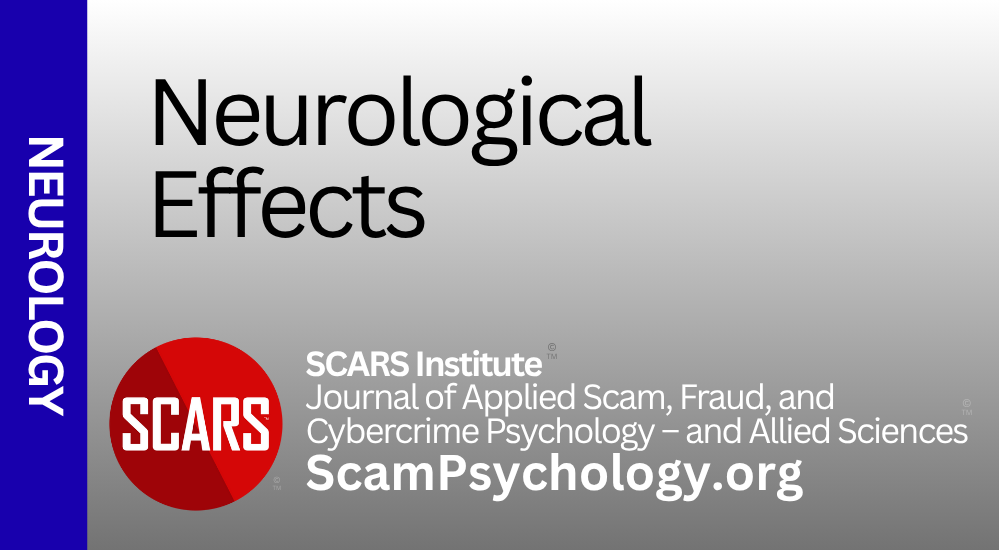
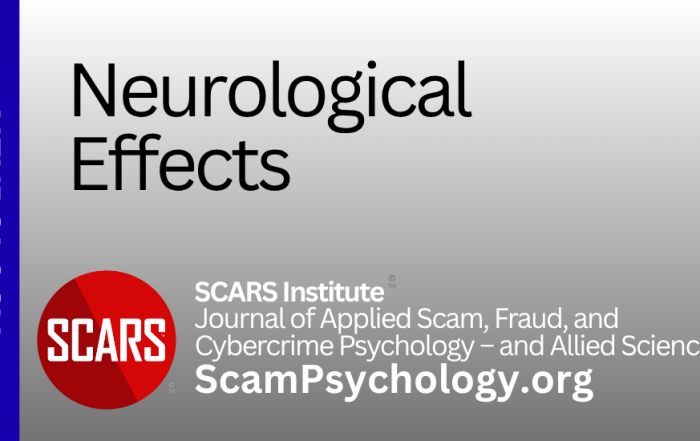

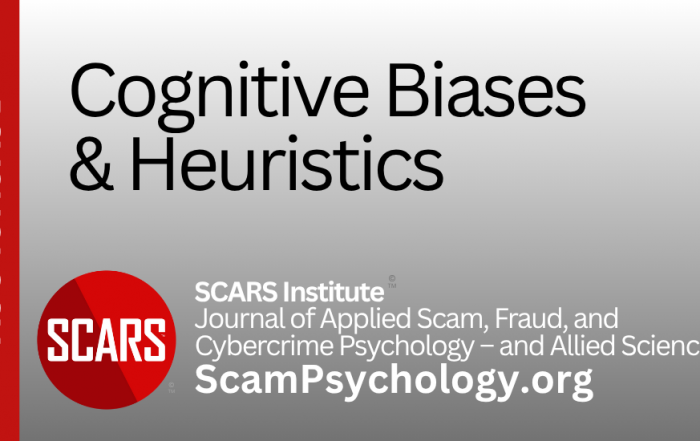
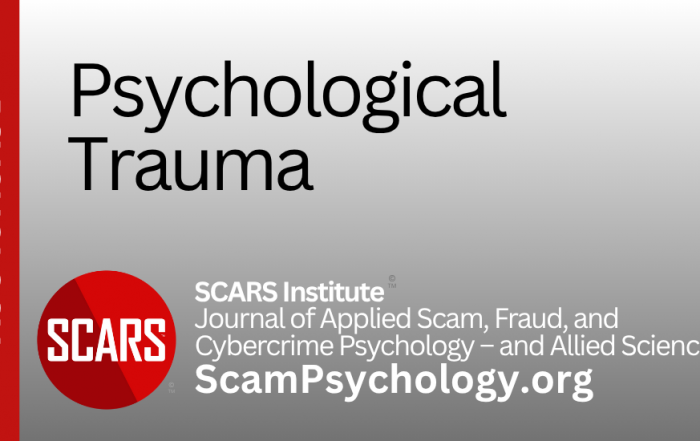



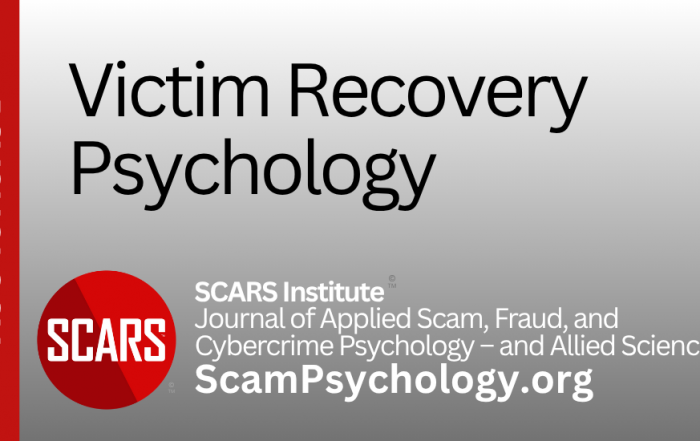
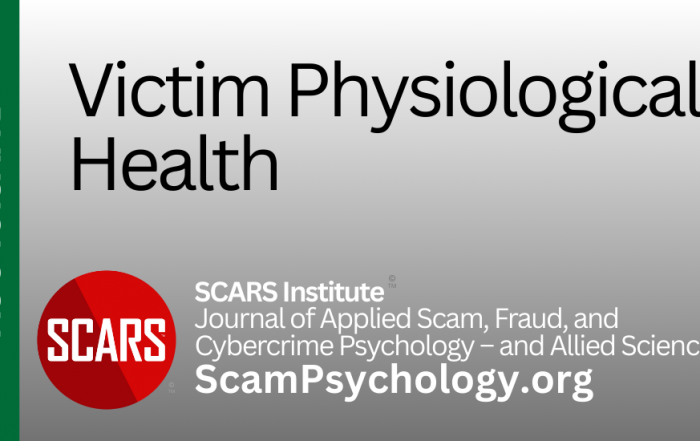

![niprc1.png1_-150×1501-11[1]](https://scampsychology.org/wp-content/uploads/2025/05/niprc1.png1_-150x1501-111.webp)
Very interesting article. I have wondered sometimes if the way I respond to trauma was due to the trauma and lack of resources experienced by my parents at the end of the Depression. It was a time when people did not talk about certain subjects, when they experienced some scarcity of food, medical and dental health and more. Both of my parents lost their teeth. Both experienced mental trauma and even some abuse from family members. I believe this eventually led to the suspicion evidence in our home life and promoted some of the things we were taught as children.